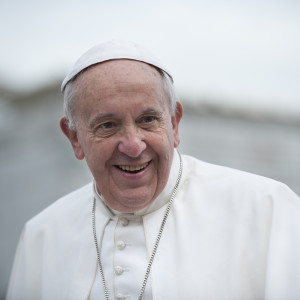With climate scientists around the world expressing shock at how rocketing September heat is well beyond the expected range, Pope Francis’ call to action on climate change could not come at a better time. He rightly demanded that richer, industrialized nations make profound changes to tackle the climate crisis. He called out climate deniers and high-consumption lifestyles.
But he also attacked the UAE’s presidency of the COP28 climate summit, suggesting that an oil-producing country with a “conflict of interest” should not be allowed to host such a UN summit.
While I welcomed the Pope’s intervention, as someone from a climate-vulnerable and oil-producing African country – Chad – I found his and other such attacks on COP28 to be a little too tone-deaf to the real challenges facing developing countries. For example, our lack of strong healthcare systems makes it difficult for citizens of such countries to have resiliency in the face of climate change.
It is easy for Western voices to criticize countries like the UAE as hypocritical. But the West has burned through most of Earth’s precious carbon budget in its pursuit of industrialization. The rest of us in the developing world are now being told we must not dare to exploit our own resources to keep the planet safe.
A total of 98 countries in the world are oil producers. Half of them are poorer, developing nations. If the Pope had his way, none of them would be permitted to ever host a COP summit.
Meanwhile, Western governments have refused to deliver on their $100 billion climate finance pledges to poorer nations. This is a recipe to further marginalize the developing world from global climate talks.
For too long, Western voices have ruthlessly pitted environmental concerns in diametric opposition to development needs – forcing poor nations to choose between the intolerable extremes of either saving the planet by accepting impoverishment or destroying the planet by shooting for prosperity.
In contrast, the UAE’s COP28 presidency is grappling with hard economic and scientific realities that Western environmental campaigners overlook.
By 2030, a sharp rise in global energy demand driven by emerging economies could lead to a supply gap of 20 percent. Even if we triple global renewable energy capacity as the COP28 presidency has called for – and as the International Energy Agency has endorsed – this won’t be enough to meet that demand. Fossil fuels will have to fill the gap. This is why unless we want to condemn developing nations to poverty, we have no choice but to capture as much emissions as possible from fossil fuels in the meantime.
The UAE was the world’s first national oil producer to officially adopt a post-oil strategy seven years ago. Since then, its state-owned oil company Adnoc became the world’s first to transition to 100 percent clean electricity from nuclear and solar. And it has just announced a plan to capture 10 million tons a year of carbon dioxide by 2030, which is nearly half its upstream emissions. Compare that to the EU’s carbon capture plans, which are infinitesimal.
And while Adnoc has been criticized for investing $150 billion in expanding oil and gas, the UAE’s overall total renewable energy plans out to 2030 are even higher, worth $300 billion.
If anyone can compel the wider oil industry to prepare for a future without oil, it is them.
But perhaps the biggest change-up with COP28 is Dr. Sultan Al Jaber’s commitment to restructuring a failed international financial system which, he rightly says, was “built for the last century.” No previous COP summit has ever attempted such a feat in order to make trillions of dollars of low-cost finance available for developing nations.
Despite their anti-COP28 rhetoric, Western countries failed yet again at the recent climate funding conference in Bonn, Germany, to fulfill their pledges for the UN Green Climate Fund. COP28’s convening of a high-level panel to fix the structural obstacles to such constant blockages is a crucial milestone. This has a direct impact on the health of people worldwide.
This, above all else, is what is at stake at the upcoming UN summit. This is our last chance to get a climate deal on the table that gets the whole world to commit, for the first time in the history of COP, to tripling renewable energy, eliminating fossil fuels that don’t capture carbon, and getting climate financing to the world’s most vulnerable. Let’s not squander it.


